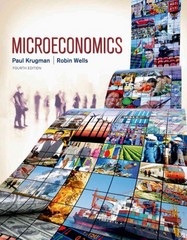Question
Big Pharma Faces an Ethical Dilemma: Should They Keep Selling to Russia? Sanctions and boycotts following the invasion of Ukraine have curtailed the export of
Big Pharma Faces an Ethical Dilemma: Should They Keep Selling to Russia? Sanctions and boycotts following the invasion of Ukraine have curtailed the export of nearly every productexcept medicines. That's up to drugmakers. Corporate exodus, an estimated400 companieslikeApple, Shell, Starbucks, McDonald's, and major credit card companieshave severed ties with Russia, suspending or exiting their operations in the country. But one major industry is bucking the trend: Big Pharma. The pharmaceutical industry is in a tricky ethical spot. To withdraw from Russia could mean that cancer patients go without chemotherapy or diabetics without insulin. That is a moral line that so far most drug companies have not been willing to breach. "Our industry has a unique humanitarian obligation to ensure medicines and vaccines remain available to patients wherever they are. That includes patients in Ukraine, in neighbouring countries, and in Russia," said Andrew Powrie-Smith, executive director of communications at the European Federation of Pharmaceutical Industries and Associationsa trade organization representing the European pharmaceutical industry. Put more frankly, "literally if our products don't get to the patients in need, people will die or have severe consequences," Joe Wolk, the chief financial officer of Johnson & Johnson,saidon March 8 during an investor conference. Sanctions levied by Western countiesincluding the United States, the United Kingdom, Canada, and nations in Europehave targeted Russia's banks, luxury goods, oligarchs, oil, and gas. But these measures have typically excluded essential goods, such as food and medicine. This means a pharmaceutical company's decision to boycott Russia is entirely at their discretion. On March 14, Pfizer released astatementthat said the company would "maintain humanitarian supply of medicines to Russians," donating all proceeds to the support of people in Ukraine. To cut off its flow of medicines to Russia would be "in direct violation of our foundational principle of putting patients first," the statement read. The same day, Bayer releaseda statementsaying the company has an ethical obligation to provide medicationsin every country: "Withholding essential health and agriculture products from the civilian populationslike cancer or cardiovascular treatments, health products for pregnant women and children, as well as seeds to grow foodwould only multiply the war's ongoing toll on human life." But not everyone thinks the industry has watertight immunity to keep exporting goods to Russia. In aMarch 11 commentaryfor industry publicationMedscape, Arthur Caplan, a prominent medical ethicist at New York University's Grossman School of Medicine, called for pharmaceutical companies to "follow the lead of other Western companies and suspend their involvement with Putin's Russia." That means
BBE351 Trimester 3 2022 FEX Page 4 of 7 stopping all sales of medicines or therapies, "be they lifesaving or consumer products," he wrote. "The Russian people need to be pinched not only by the loss of cheeseburgers and boutique coffee but by products they use to maintain their well-being." And shortly after the Russian invasion began, hundreds of leaders in biotech (albeit from smaller firms) signed anopen lettercalling for "immediate and complete economic disengagement" with Russia, including stopping investment in Russian companies, rejecting investment from Russian funds, cutting off collaborative ties with Russian companies, and halting trade in goods with Russian companies. "We must take action to make clear our abhorrence of Russia's actions," the letter said. A few members of the industry have recently announced they will withdraw drugs from export to Russiabut only certain kinds. On March 15, US-based Eli Lilly announced in astatementthat it would stop exporting all nonessential medicine to Russiamaking the drugmaker the first major pharmaceutical company to restrict the export of certain medicines to the country. What Eli Lilly deems "essential" is up to it to decide. A company spokesperson said essential medicines are treatments for serious and life- threatening diseases like diabetes and cancer; nonessential medicines include Cialis, a drug for erectile dysfunction. AbbVie, the US drugmaker that makes Botox, issueda statementsaying it "has temporarily suspended operations for all our aesthetics products in Russia." Conformis, a US-based orthopedic medical device maker, said in astatement on March 2that it was "suspending all distribution operations to Russia and any Russian-based entities" for its products. Legally speaking, the ball is in pharma's court, says Emanuela-Chiara Gillard, a senior research fellow at the Oxford Institute for Ethics, Law and Armed Conflict. Companies could choose to pull every type of lifesaving medication they sell from Russia tomorrow, and there would be "no avenue to challenge this as a matter of law because it's at their discretion they choose to trade," she says.
Question 1: Based on the information provided in the case study, briefly explain the ethical dilemmas that pharmaceutical manufacturers faced.
Step by Step Solution
There are 3 Steps involved in it
Step: 1

Get Instant Access to Expert-Tailored Solutions
See step-by-step solutions with expert insights and AI powered tools for academic success
Step: 2

Step: 3

Ace Your Homework with AI
Get the answers you need in no time with our AI-driven, step-by-step assistance
Get Started


